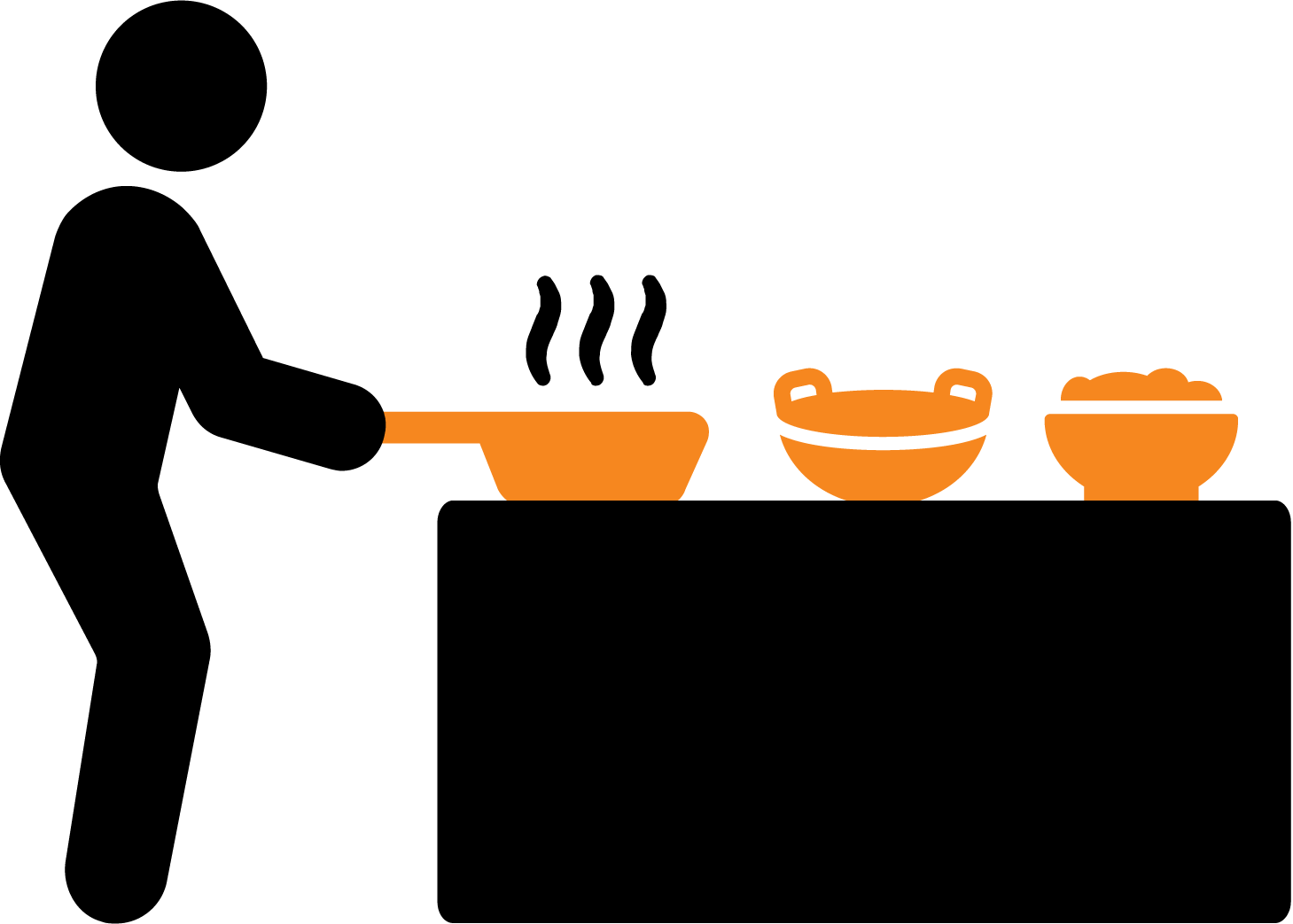Is the key to saving a home deposit as simple as giving up smashed avo for breakfast? Well not quite, but spending smarter does make a difference. On top of a budget and a high-interest savings account, examining your credit card is essential.

It can be easy to lose track of how you’re spending money, especially due to cashless payments and credit cards. Many online banking systems include tools to categorise debits and make a budget – take advantage of them. Plus, with the convenience of digital becoming more integrated into our lives, there’s a lot more resources available for budgeting and educating yourself to be financially empowered. Podcasts about financing and apps for tracking spending are great, accessible ways to become more financially minded, and kickstart you taking control of your income, expenses and goals.
Saving for a home loan or mortgage isn’t glamorous but it has to be done. One of the first rules of saving is to set a goal. But what
should that goal be? Different people have different needs, but a rough guide is that you should be saving at least 10% of your pre-tax
income.
To help with saving, you need to know what you’re currently spending. And not just on the big items like rent, utilities and groceries.
Using apps or spreadsheets to track your spending is the first, easiest step to becoming aware of where your money goes, allowing you to
allocate money more appropriately for your goals.
People beginning to consider buying a home might not have been exercising as much financial restraint as they’d like to by this point. It’s
difficult to find a balance between socialising and experiencing life, while saving – you don’t want to feel restricted always, so it’s best
to be realistic about what you really want to achieve and what you’re willing to compromise on. This can be assessed continually; after a
while of saying yes to a lot of things, it might be worth reigning it back and making some sacrifices. This can actually help those
splurging moments feel more special. Conversely, after a while of tight spending, it's great to treat yourself, and be sure to celebrate
all the progress you've been making.
Some costs can’t be avoided – but many everyday expenses can be reduced. Some common examples that are easy to implement include:

While not everybody can move in with parents, friends or relatives to reduce rent costs, it’s a good option to consider if possible, as a
small term sacrifice for a long term payoff. Alternatively, exploring options for cheaper rentals or share houses is smart, especially
if you’re currently paying over 30% of your income on rent.

Implementing tactics like meal planning, buying in bulk, and being smarter about grocery shopping – like looking online for sales or
buying produce from farmers markets. Setting aside a budget for eating out and takeaway is important, but sticking to it is another
challenge, especially if you’ve been used to it. It's all about building up self-discipline while being realistic about the lifestyle
you want to live.

Shop around to reduce your regular bills – you may get better value if you switch, or tell current providers you intend to change. If
you've been a loyal customer to them, they might offer another deal to keep you, but make sure it's worth it compared to competitors.
Seek discounts for taking out multiple policies with one insurer, and assess your health insurance policies.

Being smarter about transport can add up in savings – taking public transport, carpooling with colleagues, walking, riding, reducing
parking fees, or consider a combination of transport methods.

Thrifting or buying second hand furniture, appliances or clothes are often more economical, plus sustainable, and can help you live a
more conscious life while reducing costs. Openly communicating with friends and family to borrow clothes, tools, and appliances can also
be a great group way of saving.

Make sure you’re paying off debts or credit cards completely each month or as much as possible, to avoid the added expense of paying
interest. Better yet, try to cancel all credit cards if possible or at least make sure the rewards points you accrue are valuable.
If you’re consistently overspending your income, it’s unlikely lenders will consider you for loans – they like to see proof you can save. If you spend excessively on things like buying clothes, going out or expensive hobbies, it may be unrealistic to cut the expense entirely. Set a weekly or monthly limit and reduce that limit over time.
A survey of more than 1000 Australians showed that 73% have a problem with overspending. In particular, people tend to go overboard when Christmas rolls around. To reduce gift expenses, be like Santa: make a list (and a budget). Buy only planned items within your allocated budget – then stop! Ask your family for support; it’s easier to put a cap on gift values if everyone else does too. Planning earlier in the year is smart to save the hassle during the festive season, and you can often find great deals throughout the year.
Another common way Aussies overspend is on holidays. Research has shown that a third of holidaymakers spent more on their trip than planned. Do your research and set a daily budget, accounting for contingencies – after all, you don’t want to feel too restricted while you're vacationing.
Look for opportunities to eliminate costs. Cancel unused services. Update your internet or mobile plans if you’re always paying for excess
data. Ask yourself: are you really using that gym membership? Are you getting value from your subscriptions? Remember, every wasted dollar
is money you could be spending on your own home. But be sure to be intentionally putting it towards that, in a high-interest savings
account, that you don't take money out from. Distingishing it from your regular savings account, and regularly searching for the best
interest rate is key to growing your savings.
Applying for a loan? Don’t just pay off the credit cards. It seems like a no brainer, right? You are buying a home, so you’ll pay off your credit cards to reduce your debt, but keep them active so you can buy some furniture or deal with emergencies even when you have a mortgage to pay. Wrong.
It’s obvious that a lender will consider your credit card debts and the monthly repayments on those when you apply for a mortgage. But what many people do not realise is that credit cards that don’t have any balance owing can also impact a lender’s assessment of what you can afford to borrow.
If you have a high credit limit, you also have a high debt risk in the eyes of your lender. As the logic goes, there is no stopping you from racking up debt on your credit card the day after your loan is approved. Say, on lovely furniture to fill that new house.
“We have to take account of three per cent of the total credit card limit, regardless of what the applicant owes. If they had a $10,000 limit but they only owe $1000, we still have to assess $300 a month and that comes directly out of their liability. It does make quite a difference.”
From this, it can be surmised that if you haven’t put a cent on your credit card for the past five years, a high credit limit will negatively affect your serviceability; $300 per month off a mortgage repayment means quite a bit over the life of a loan. In fact, being able to repay an extra $300 each month on a 30-year $500,000 loan at 5.5 per cent interest will mean paying it off 5 years faster – saving approximately $100,000 on the total cost of the loan. Alternatively, it may mean that you are able to borrow an extra $50,000.
The best thing you can do is lower your credit limit or cancel your credit account. You need to pay out your credit cards and avoid having any other debt, though. You need to be able to use your full amount of income. For those who have to pay off their credit account before dreaming of cancelling their liability, it is, of course, imperative to make those payments on time to avoid negatively impacting your credit history.
If you’re already smart at savings and spending, but still are struggling or seeking to find out how you can do better, discuss it with our friendly team who can inform you of home loan options to suit you. For people on a low income or complicated financial history, specialist loans can be a great way of still achieving your home loan goals. Simply talk to our team at Acquired who can answer any of your questions in more detail.
First Home Buyer
10 Tips for Property Investors
Moving Checklist